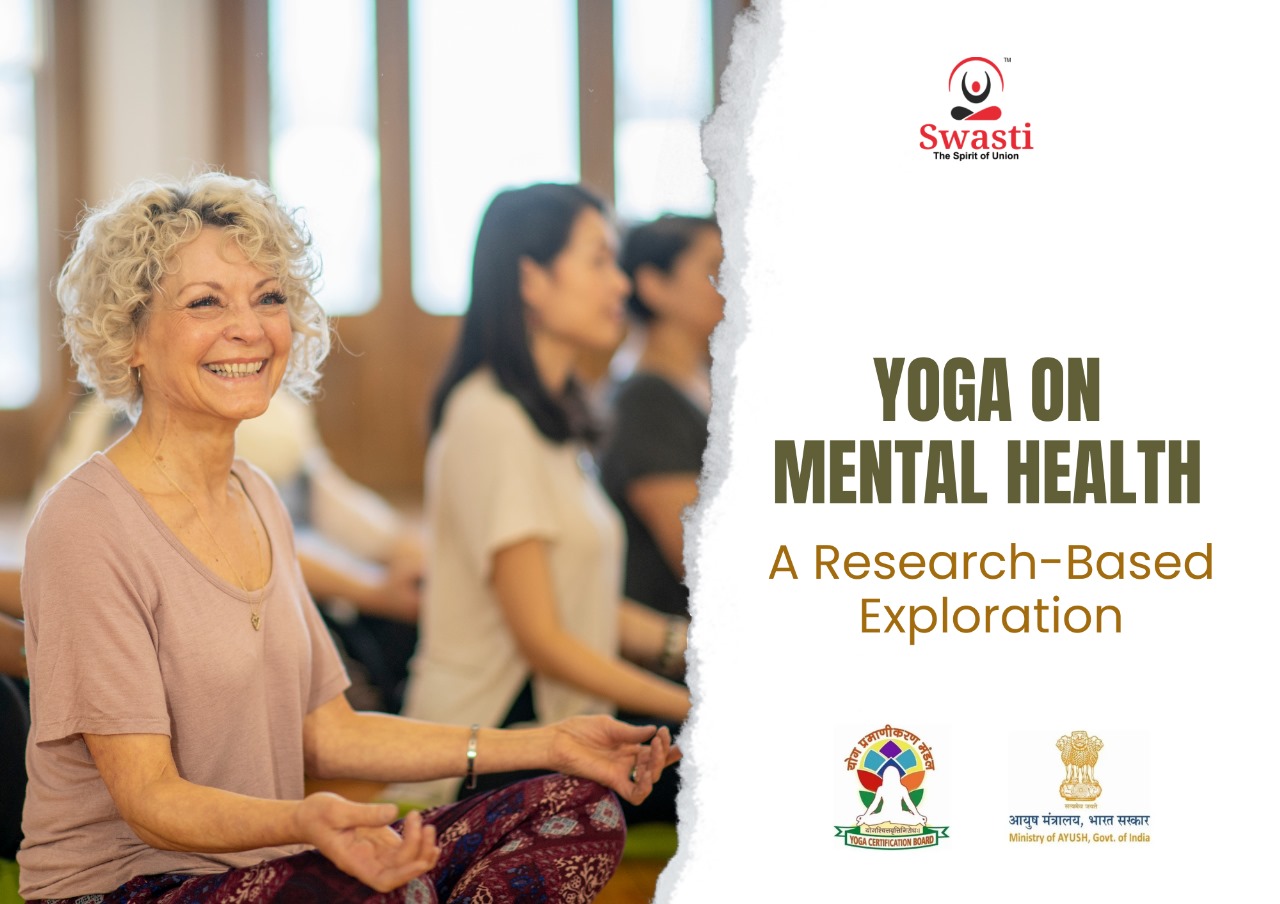In recent years, an increasing body of research has underscored the profound impact of yoga on mental health. This ancient practice, which harmonizes physical postures, breath control, and mindfulness, has emerged as a powerful tool for enhancing well-being and mitigating mental health challenges. A comprehensive understanding of the role of yoga in mental health is essential, and recent studies shed light on its efficacy in diverse settings and populations.
Research Insights:
1. Yoga in Correctional Facilities:
In 2010, Harner, Hanlon, and Garfinkel conducted a groundbreaking study focusing on incarcerated women. The researchers utilized Iyengar Yoga as an intervention, conducting sessions twice a week for 12 weeks. The results were remarkable, showcasing a significant improvement in depression symptoms, anxiety symptoms, and perceived stress among the incarcerated women. This study highlighted the potential of yoga in enhancing mental health outcomes for individuals in correctional facilities.
2. Yoga Across Age Groups:
Gururaja et al. explored the impact of yoga on different age groups in Japan in 2011. The study administered a 90-minute yoga class once or twice a week for a month to both younger and older individuals. The findings demonstrated a decrease in salivary amylase activity and state anxiety scores, emphasizing that yoga benefits mental health across various age demographics.
3. Yoga for Elderly Individuals with Dementia:
In 2011, Fan and Chen delved into the mental health benefits of yoga for elderly individuals with dementia. The study revealed that the group undergoing yoga therapy exhibited better physical and mental health compared to the non-yoga group. Reduced depression rates, behavioral problems, and additional benefits such as lower blood pressure and improved respiratory rates further underscored the positive impact of yoga on mental health in the elderly.
4. Yoga in Trauma and Stress Management:
Telles, Singh, and Balkrishna conducted a review-based study in 2012, exploring the use of yoga in managing mental conditions arising from trauma, including depression, anxiety, PTSD, and stress due to exposure to natural calamities or incarceration. The review highlighted the potential of yoga and mind-body interventions in reducing mental health disorders post-trauma. However, the study emphasized the need for future research with larger sample sizes to strengthen these findings.
5. Comprehensive Review on Yoga Intervention:
A research review by Büssing et al. synthesized evidence from various studies on the impact of yoga on physical and mental health. Meta-analyses of randomized clinical trials demonstrated high beneficial effects of yoga, particularly in pain-associated disability and mental health. The review acknowledged yoga’s effectiveness as a supportive adjunct to other treatment modalities, calling for further research with larger samples to enhance the evidence base.
6. Yoga for Adolescents in School Settings:
Khalsa et al. conducted a study evaluating the potential mental health benefits of yoga for adolescents in secondary school. The results showcased statistically significant differences in anger and fatigue/inertia between yoga participants and controls. The study suggested that implementing yoga at a school level is acceptable and feasible, highlighting its potential role in preventing and maintaining mental health among adolescents.
7. Yoga as an Adjunctive Treatment for Partner Violence Survivors:
Clark et al. conducted a feasibility test using yoga as a group therapy for female victims of partner violence. The 12-week trauma-sensitive yoga intervention, combined with psychotherapy, demonstrated significant changes, especially in primary outcomes such as anxiety, depression, and PTSD symptoms. This promising feasibility test suggested that yoga could serve as an effective adjunctive treatment for mental health conditions in partner violence survivors undergoing group therapy.
8. Yoga for Work-Related Stress in Professionals:
Lin et al. (2015) conducted a randomized control trial examining the effect of yoga on work-related stress and autonomic nerve activity in mental health professionals. The 12-week yoga intervention resulted in a significant reduction in work-related stress and an enhancement of stress adaptation compared to the control group without yoga intervention. This study highlighted the potential of yoga in alleviating stress among professionals in demanding work environments.
9. Role of Yoga and Mindfulness in Severe Mental Illness:
Sathyanarayanan et al. conducted a research review to explore the role of yoga and mindfulness in severe mental illnesses, including schizophrenia, major depressive disorder (MDD), and bipolar disorder (BD). The review indicated that both yoga and mindfulness interventions appeared useful as adjuncts in treating severe mental illnesses. Studies demonstrated improvements in psychopathology, anxiety, cognition, and functioning in patients with schizophrenia. Additionally, both yoga and mindfulness showed significant benefits in reducing the severity of depressive symptoms in MDD.
Conclusion:
The amalgamation of evidence from these diverse studies underscores the transformative role of yoga in mental health. From correctional facilities to school settings, across age groups, and in the face of trauma and severe mental illnesses, yoga has showcased its potential to enhance mental well-being. These findings not only contribute to the growing body of knowledge supporting yoga’s efficacy but also emphasize the need for continued research to unlock the full spectrum of its benefits. As individuals, professionals, and researchers delve deeper into the profound impact of yoga on mental health, the ancient practice continues to emerge as a beacon of hope and healing in the modern world.
In conclusion, the transformative impact of yoga on mental health is profound, offering a sanctuary for emotional well-being and stress relief. For those inspired to share this therapeutic practice, consider exploring the best yoga teacher training courses in Pune. Embark on a journey to not only enhance personal well-being but also to guide others toward mental resilience and balance.


